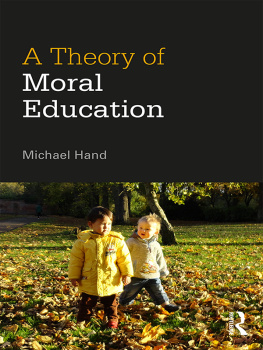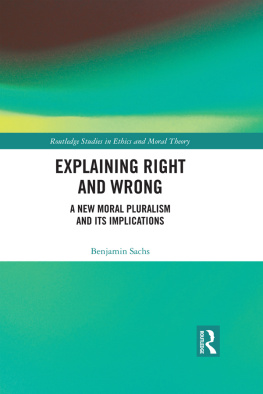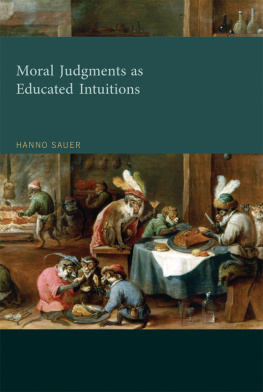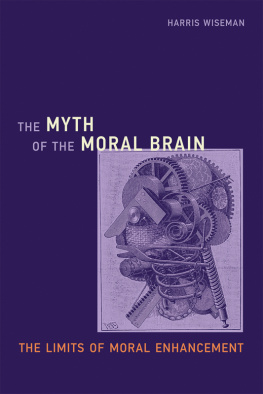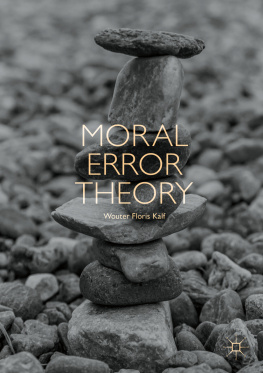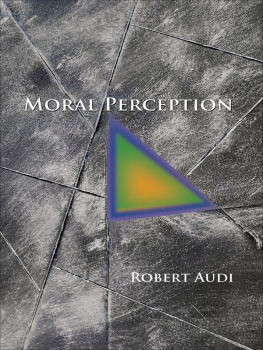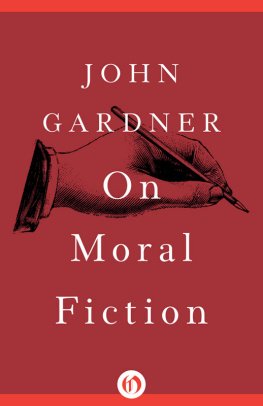Michael B. Gill
(p.v) Acknowledgements
This book is pluralist in method as well as content. I examine historical texts, empirically grounded work in moral psychology, and intuitively supported conceptual arguments. I believe the resulting view is all the more plausible for being arrived at through a variety of approaches. Looking at the same issue through different lenses is also, to me at least, more interesting.
I am deeply grateful to the many friends and colleagues who helped me in this project. Special thanks go to Shaun Nichols, Mark Timmons, and Jenann Ismael, who discussed almost every aspect of this work with me innumerable times. Their feedback made the book much better than it would otherwise have been. Their company made it immeasurably more enjoyable to work on.
I have also received significant help from all of the following: Kate Abramson, Julia Annas, Rachel Cohon, Stephen Darwall, Remy Debes, Richard Dees, Sam Fleischacker, Jerry Gaus, Ryan Hanley, James Harris, Colin Heydt, Tom Holden, Terry Horgan, Rachana Kamtekar, David Owen, Eric Schliesser, David Schmidtz, and Elizabeth Radcliffe.
It used to be a relatively common practice to include in a books acknowledgements a statement along the lines of: Any flaws and errors herein are strictly my own, and not the responsibility of those who have helped me in the writing of this book. Such statements always struck me as irritatingly unnecessary. Of course the flaws and errors are yours! But now I find myself wanting to say the same thing. For on matters outside my field of expertise I have sought guidance from friends. Yet Im sure Ive still made mistakesof both commission and omission. So what I want to say is: those mistakes are present despite my friends efforts. They really did their best to try to get me to do better.
To Sarah, Hannah, and Jesse: thanks for filling my life with so many different things of value.
Chapter is based on my Humean Moral Pluralism, History of Philosophy Quarterly, 28 (2011): 4564.
Chapter is based on my Humean Sentimentalism and Non-Consequentialist Moral Thinking, Hume Studies,37 (2011): 16588.
Chapter is based on my Moral Pluralism in Smith and his Contemporaries, Revue Internationale de Philosophie, 68 (2014).
are based on Michael B. Gill and Shaun Nichols, Sentimentalist Pluralism: Moral Psychology and Philosophical Ethics, Philosophical Topics, 18 (2008): 143-67.
Chapter is based on my Agonizing Decisions and Moral Pluralism, in Mark Timmons (ed.), Conduct and Character, 31729. Oxford: Oxford University Press.
Notes:
(.
() . With the notable exception of Joel Feinbergs acknowledgements of Professor Josiah S. Carberry.
Many perennial debates in moral philosophy are compelling because of how they bear on justifications end. For instancedoes morality originate in reason or sentiment? If morality originates in reason, then it will be at least theoretically possible to provide a thoroughly rational justification for all our moral judgments. If morality originates in sentiment, then moral justification will end with concerns of ours that are not rationally required. The danger of a mistaken sentimentalism is giving up too soon: we might think a moral commitment of ours is as justified as it can be, when in fact it is based on something that can be shown to be irrational. The danger of a mistaken rationalism is unrealistic expectations: we might think a moral judgment is illegitimate because it cannot be shown to be fully rational, when in fact it is as justified as it can be.
Is morality universal or relative to culture? If its universal, then if two cultures assign differing moral status to a single practice it will always be at least theoretically possible to show that one of them is wrong. If its relative, then two cultures with differing views may both be as justified as can be. The danger of a mistaken relativism is, once again, giving up too soon: resting content with a practice that further moral scrutiny would reveal to be unjustified. The danger of a mistaken universalism is insisting on the impossible: refusing to accept the legitimacy of a practice because it fails to achieve a justificatory standard that is in fact unreachable.
Its bearing on justifications end is also what makes the debate between pluralists and their opponents compellingand profoundly important to the first-person, deliberative life of a moral agent.


